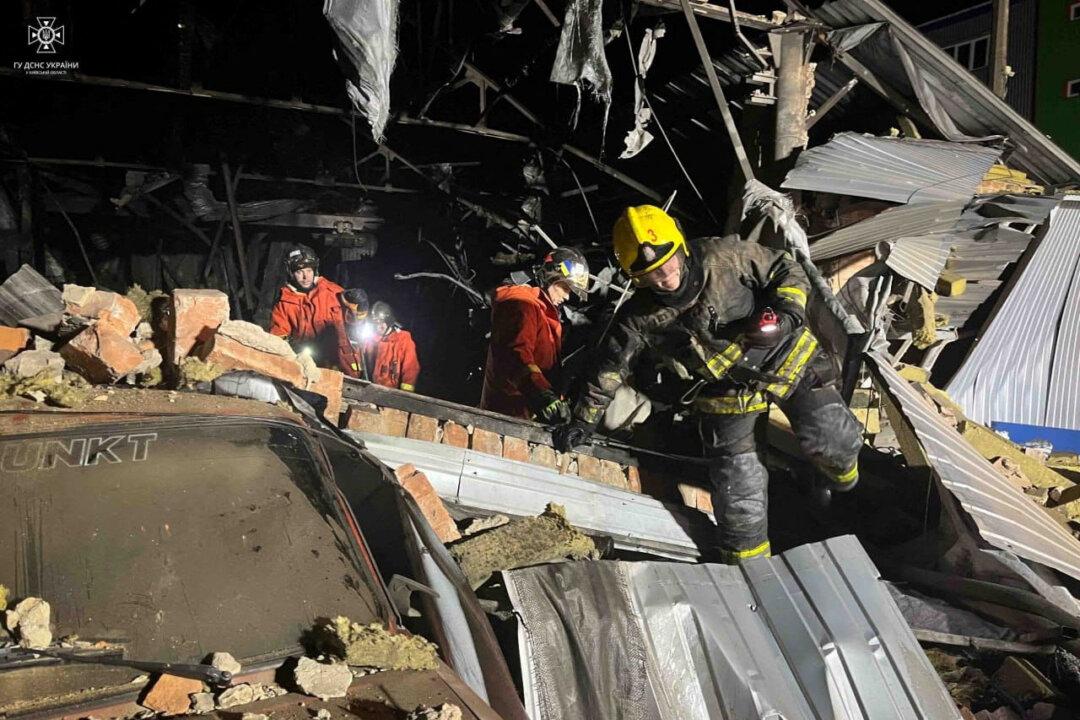Kyiv and Ukraine’s northeastern city of Kharkiv have again come under Russian missile attack, leaving five people dead and causing significant material damage, Ukrainian officials said on Jan. 2.
According to Kyiv Mayor Vitali Klitschko, the strikes damaged gas pipelines in the capital’s Pecherskyi district and disrupted electricity and water supplies in several parts of the capital.





